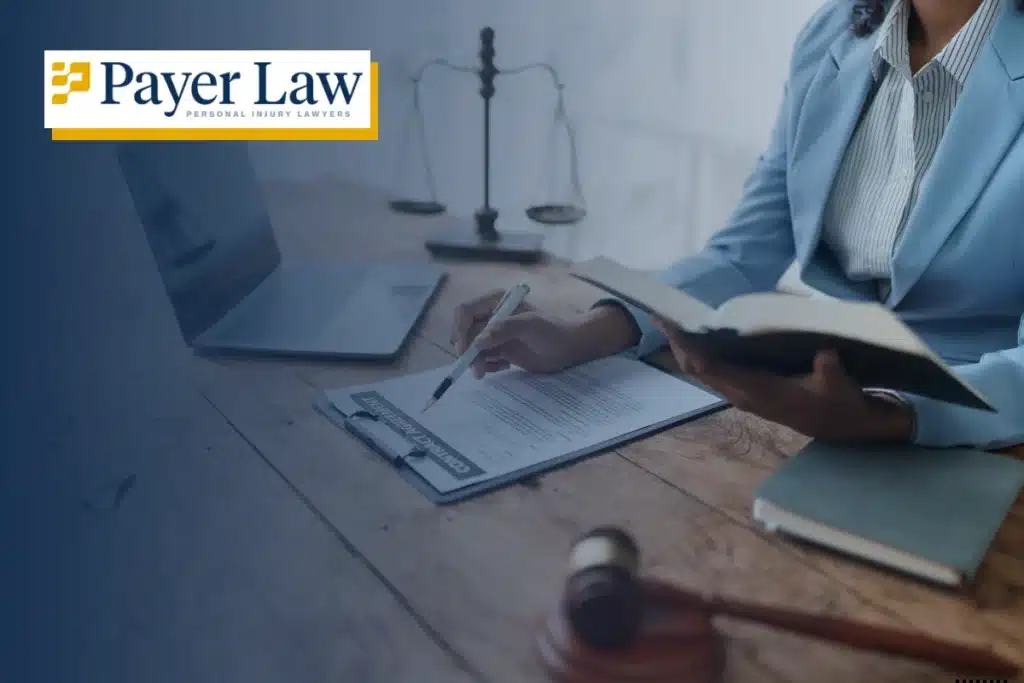You may be wondering what attorney-client privilege is and how it impacts your legal claims and rights.
In the world of law, attorney-client privilege is a vital concept. It encompasses how our legal system establishes privacy between lawyers and clients.
What Is Attorney-Client Privilege?
The attorney-client privilege is an ancient legal concept. Its roots are established in Roman and English law. During the reign of Queen Elizabeth I in the 16th century.
The privilege allows individuals to seek legal advice without publicizing their confidential communications. The privilege creates a zone of privacy within the attorney-client relationship. With it, clients can openly and honestly share with their lawyers.
Sound Legal Advice and Assured Confidentiality
The core idea behind attorney-client privilege is to promote sound legal advice and advocacy. With assured confidentiality, clients can provide their lawyers with all relevant information. In turn, attorneys can offer well-informed advice.
This transparency helps lawyers fulfill their professional responsibilities. Lawyers must act in the best interests of their clients and contribute to an efficient administration of justice. The court cannot compel an attorney to disclose information derived from clients seeking legal counsel. Courts cannot force the clients to testify about consultations with an attorney.
Several conditions are needed to establish the attorney-client privilege. These conditions include seeking professional legal advice, confidential communication, and protection from disclosure.
What Makes Up an Attorney-Client Relationship?
There must be a well-established attorney-client relationship before attorney-client privilege exists. It is vital to recognize that this relationship only sometimes applies. The attorney-client relationship develops from explicit agreements or is implied by a party’s conduct.
Often, it is evident that an attorney-client relationship exists. This can happen when an attorney formally recognizes the client’s representation. Acknowledgement of the relationship can be shown through engagement letters, fee contracts, or oral agreements. An attorney appearing on a client’s behalf signals that a privileged relationship exists.
When Is an Attorney-Client Relationship Implied?
The waters become murkier when it’s unclear whether an attorney-client relationship exists. An implied relationship is inferred from various factors. Implied relationships can arise from the nature of the conversation or paid fees. It can also occur by receipt of legal advice or the history of prior representation.
For businesses, especially, determining an attorney-client relationship can be complex. The privilege extends to communications between outside counsel and a corporation. But it depends on the roles and responsibilities of the individuals involved. Corporate officers, directors, and employees may enjoy this privilege. But the communications must relate to their corporate duties.
What are Upjohn Warnings?
Communications between in-house and outside counsel are typically privileged. But, the distinction must be clear. There is often no privilege when an in-house counsel communicates with a corporation’s employee. This is where the Upjohn Warning comes into play.
An Upjohn Warning, or “Upjohn Rights Warning,” is a statement provided by attorneys to corporate employees. It’s given at the beginning of interviews or discussions related to legal matters. The warning clarifies the attorney-client privilege in the context of corporate representation. Its purpose is to ensure that employees understand their rights and obligations.
Every situation will be different. The content of communication and in-house counsel’s company involvement impact whether the privilege applies.
Are All Communications Privileged and Confidential?
Privileged and confidential communications are not limited to written or verbal exchanges. Non-verbal cues like silence or nods can constitute protected communication.
The privilege protects the communication itself, not the underlying information. Information that can be obtained from a non-privileged source is not protected. Sharing something with your attorney does not automatically shield the underlying facts from disclosure if they can be discovered elsewhere.
When Can the Attorney-Client Privilege Be Waived?
The power to assert or waive the attorney-client privilege lies with the client. The attorney cannot waive the privilege. In the corporate context, the control group often decides whether to assert or waive the privilege. This group often consists of officers and directors. The privilege can be transferred to new management if there is a change in the corporate structure.
Waiver of the privilege is a significant consideration. Some clients can waive attorney-client privilege unintentionally. This can occur through social media posts or public communications. Inadvertent disclosure can waive the attorney-client privilege.
Exceptions to the Attorney-Client Privilege
While the attorney-client privilege is a robust protection, it is not absolute. Certain public policy exceptions exist.
Exceptions to the attorney-attorney client privilege include:
- Death of a Client: The privilege may be breached in cases where litigation arises among the heirs, legatees, or parties claiming under a deceased client.
- Fiduciary Duty: Shareholders may pierce a corporation’s attorney-client privilege in cases related to fiduciary duty.
- Crime or Fraud: Communications related to the commission or concealment of a crime or fraud may not be privileged.
- Common Interest: Suppose two parties share the same attorney in a legal matter. Two parties sharing an attorney for the same legal matter may not assert the attorney-client privilege against each other in later litigation.
Understanding the attorney-client privilege nuances is essential for anyone navigating the legal landscape. The attorney-client privilege is a fundamental safeguard in the legal world. It ensures clients can share information openly and honestly with their attorneys.
Your confidentiality and rights are top priorities. An experienced personal injury lawyer can provide you with the guidance and support you need for your legal matters. If you need legal counsel or have questions about attorney-client privilege, do not hesitate to contact an experienced Florida personal injury lawyer.
Contact Our Florida Personal Injury Law Firm For Help Today
If you’ve been injured in an accident, contact our Florida Personal Injury Lawyers to schedule a free consultation today. We serve all of Florida from our personal injury office in Miami and Orlando.






